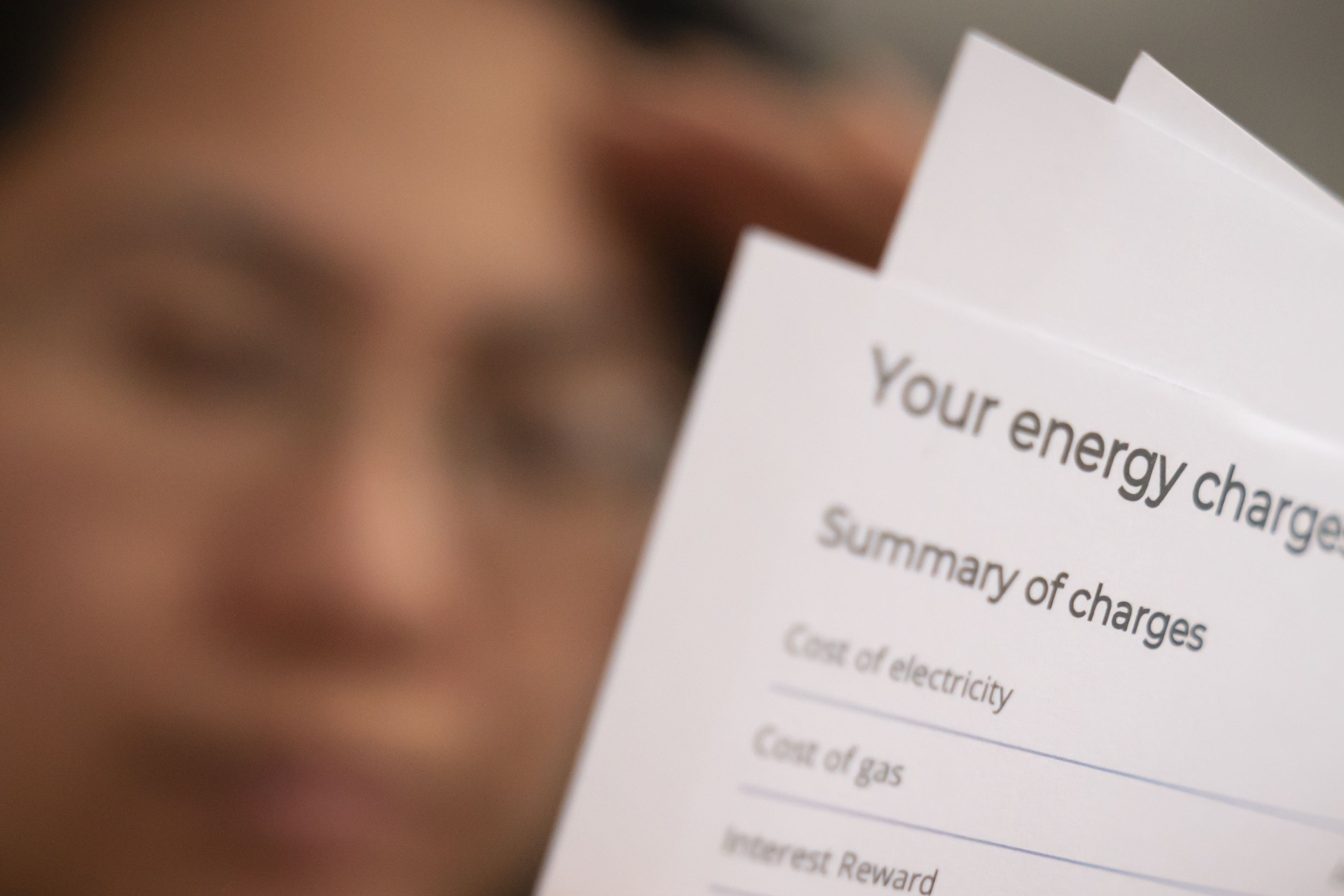Martin Lewis joins calls for Government to urgently halt energy bills increase
In a letter to Chancellor Jeremy Hunt, Mr Lewis says that 1.7 million more people could be pulled into hardship if the increase goes ahead.

Your support helps us to tell the story
From reproductive rights to climate change to Big Tech, The Independent is on the ground when the story is developing. Whether it's investigating the financials of Elon Musk's pro-Trump PAC or producing our latest documentary, 'The A Word', which shines a light on the American women fighting for reproductive rights, we know how important it is to parse out the facts from the messaging.
At such a critical moment in US history, we need reporters on the ground. Your donation allows us to keep sending journalists to speak to both sides of the story.
The Independent is trusted by Americans across the entire political spectrum. And unlike many other quality news outlets, we choose not to lock Americans out of our reporting and analysis with paywalls. We believe quality journalism should be available to everyone, paid for by those who can afford it.
Your support makes all the difference.MoneySavingExpert’s Martin Lewis has joined calls for the Government to urgently consider halting plans to raise energy bills in April, saying any decision cannot wait until the spring Budget.
In a letter to Chancellor Jeremy Hunt, Mr Lewis said that 1.7 million more people could be pulled into hardship if he does not freeze prices in the spring.
Pushing back the looming 20% hike to the energy price guarantee (EPG) from April would be both “practical and fair” and help people survive until bills begin to come down later in the year, he wrote.
The letter says: “This cannot wait until the Budget – in practice, energy firms will need to know much sooner if the planned rise isn’t happening on 1 April, or they are bound to have to communicate to customers that it is coming.”
He said that the decision to increase prices was made at a time when wholesale rates were looking to be far higher than they are now, and that the underlying price cap currently looked as though it could be cheaper later this year than even the current EPG rate of £2,500 a year for a typical household.
This gave the Government “significant headroom” to enable a postponement, while maintaining a lower EPG would also help reduce inflation, he said.
“Postponing the increase is a practical and fair decision, with household energy bills already double what they were the prior winter.
“Crucially, the damage to people’s pockets and mental health of another round of energy price rise letters is disproportionate.”
Simon Francis, co-ordinator of the End Fuel Poverty Coalition, said energy customers were facing a “cliff edge” because other support schemes come to an end in March, meaning bills will go up between 19% and 43% depending on how the EPG is set from April.
He said: “Keeping the EPG at current levels is the very least the Government can do to help people manage through the ongoing energy bills crisis.
Keeping the EPG at current levels is the very least the Government can do to help people manage through the ongoing energy bills crisis
“The Government has said that it will target more support at vulnerable groups from April, but again this does not equate to the same level of help people have had this winter. And that help has proven to be insufficient with millions spending this winter struggling in cold damp homes.
“As people have run up huge levels of energy debt, the Government will also come under increasing pressure to help households with debt relief – especially in light of the obscene levels of profits energy firms have been declaring.”
The charity National Energy Action (NEA) predicts that the number of fuel-poor households will rise from 6.7 million to 8.4 million from April – approaching double the 4.5 million households in this position in October 2021.
The charities Citizens Advice, Fair By Design, NEA and StepChange had also previously urged against the EPG being increased in April.
Emma Pinchbeck, the chief executive of Energy UK, which represents suppliers, told MPs that the industry too wanted to see the Energy Price Guarantee fixed to £2,500 for the rest of the year.
“There’s an underspend on that programme against what was budgeted because gas prices have fallen,” she said.
“We’re also calling, like the consumer groups, for some kind of targeted support in addition to that, so we’re very up for conversations about things like social tariffs.
“And we’ve written to the Chancellor to call for the long-term picture on bills to be sorted by investing in green infrastructure but also in energy efficiency and doing some things on VAT to make things easier.”